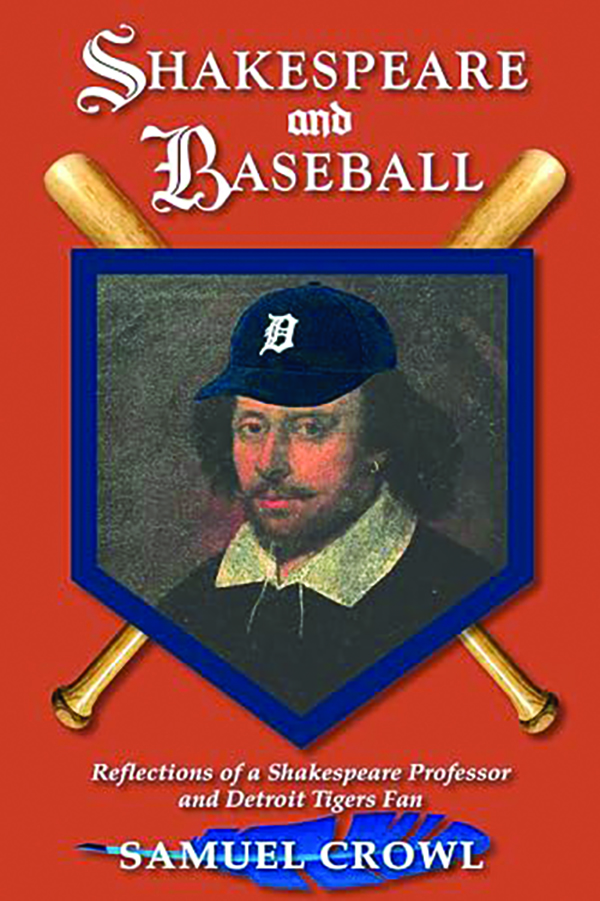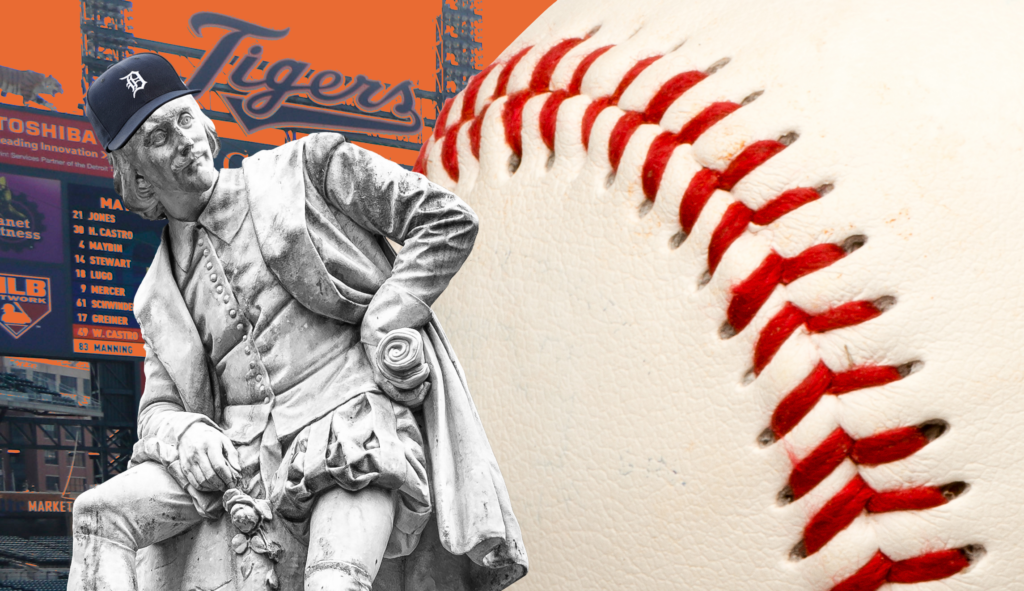Johnny Wayne and Frank Shuster, a legendary Canadian comedy duo, had a memorable sketch, “A Shakespearean Baseball Game.” First broadcast on CBC in 1958 and later performed on The Ed Sullivan Show, it was a humorous nod to Canada’s Stratford Festival, which has achieved international recognition for its Shakespeare plays. Wayne played the team’s catcher, Yogi, a Hamlet-like character desperately trying to end a 10-game hitless streak. Shuster played the manager with Horatio-like qualities. Memorable lines included, “Oh, what a rogue and bush league slob am I, who has 10 days hitless gone.”

Could Shakespeare and baseball be linked in a serious fashion? While fitting a square peg into a round hole seems like an easier task, a creative way may actually exist. Ohio University English professor Samuel Crowl’s Shakespeare and Baseball: Reflections of a Shakespeare Professor and Detroit Tigers Fan is a highly original attempt to bring the two into an uneasy union.
Crowl watched his first Tigers game in 1950 and first Shakespeare play, Richard III, starring Sir Alec Guinness, during the aforementioned Stratford Festival’s inaugural 1953 season. It was “easier for a midwestern kid to become a passionate baseball fan than a Shakespearean,” so the Tigers “held the upper hand on my attention and affection” in his teens. Additional trips to Stratford invited a closer relationship to Shakespeare, and it “established his power on my imagination.” The link was firmly established after Crowl watched Henry IV, Part 1 in 1958. “Shakespeare’s Prince Hal became forever linked for me with Detroit’s great left-handed pitcher Hal Newhouser (nicknamed Prince Hal) in my eager appetite for the pleasures of play.”
While the author’s passions were separate entities, there were ways to align them. “Baseball is the writer’s game,” Crowl noted. “Poets, novelists, essayists, biographers, historians, and even Shakespeareans have found the game irresistible.” In his analysis, “writers love the pace and grace of the game and the way it invites its history to seep into the watching of any individual encounter. What other game has its own national anthem (played not at the beginning, but as the game reaches its climax), an Iowa field of dreams, and mock-epic poem?”
Moreover, he pointed out “baseball’s inherent narrative quality invites writing and replay to make the experience of the game complete, just as the theater audience completes its reception of a performance in a review.” There’s also an established link between Shakespeare and sports. The Bard used “various sports and games, in fact and metaphor, in his plays.” A fencing match in Hamlet, for instance. The French Dauphin’s “mocking gift of tennis balls” in Henry V. Goneril’s servant, Oswald, is arrogantly described by Kent as a lowly “base football player” in King Lear.

Crowl’s reminiscences about Shakespeare and baseball are most poignant when they intersect. He describes playing hooky with fellow Shakespearean scholars to watch a Los Angeles Dodgers game and a former student surprised and pleased to see his old professor “in the crowd” at Tigers Stadium. Shakespeare’s “clash of powerful egos” in his histories and tragedies made him think of clashes between baseball owners and players, including the “divisive issue” of building a new baseball stadium in Detroit. A rainy game, muddy conditions, and spectators jubilantly running onto the field after the Tigers won the 1984 World Series reminded Crowl of lines from A Midsummer Night’s Dream describing the “dislocations in the natural world caused by a quarrel between two powerful supernatural figures,” Oberon and Titania.
Naturally, Crowl isn’t a Shakespearean fool. “I readily admit that linking the Bard and baseball seems an old Shakespeare professor’s giddy leap of the imagination,” he wrote. Then again, isn’t imagination what often guides passionate fans of Shakespeare and baseball? By looking outside the box, and clutching a box score sheet and fine work of literature, Crowl’s observations about play and pleasure amount to much ado about something.
CLICK HERE TO READ MORE FROM THE WASHINGTON EXAMINER
Michael Taube, a columnist for four publications (Troy Media, Loonie Politics, National Post, and Epoch Times), was a speechwriter for former Canadian Prime Minister Stephen Harper.
